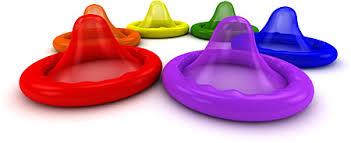
In the UK, doctors report that, incredibly, they are still seeing people who believe in contraceptive practices such as 'doing it standing up' or 'trying to pull out before he comes'.
There is also a dangerous trend of young girls being pressured into unprotected anal sex to avoid pregnancy and believing it will protect their ‘vaginity’
The truth is you can get pregnant or catch an STI from whatever position you have sex in, whether both partners orgasm or not, whether the male partner pulls out before he ejaculates (as men can't stop themselves leaking sperm before they come). The list goes on....
I don’t think it will surprise many people to know that the UK is experiencing growing levels of unwanted pregnancy and more STI’s are being diagnosed across all age groups and sexual orientations.
What are the options?
There are 16 forms of effective contraception available via the NHS, and it is easy to find the method best suited to your age, lifestyle and health.
Be confident and don’t be afraid to talk to a healthcare professional, it is what they do and it’s really unlikely you will say or do something they haven’t seen or heard before. Expect a little trial and error too in terms of finding the best method for you, there’s a lot of choice out there.
(And by the way if you're under 16, healthcare professionals won't tell your parents/carer that you’re requesting contraceptives, as long as they believe you understand the information you're given, and your decisions are correct for you #justsaying)
Free contraceptives and advice can be accessed from your GP surgery, family planning clinics and Brook advisory clinics (if you’re under 25), plus pharmacies for condoms or emergency contraception. There is also the C Card scheme, if you’re male or female and aged between 13-24, which makes it really easy to pick up free condoms and advice at a wide range of places. You can search for local NHS services online
NHS Choices provides a thorough overview of the pros, cons and practicalities of each of the 16 methods of contraception.
It is really worth remembering though that male and female condoms are the only contraceptives that protect against both pregnancy AND STIs and that’s protection for both parties
Consider that some contraceptives must be thought about every day, for example, the oral combined contraceptive pill; others every time you have sex, such as the diaphragm or condoms. Some methods, like the coil (IUD/IUS), contraceptive implant or injection are long-lasting (up to 5 years) and are reversible. Sterilisation is permanent.
There are two types of emergency contraceptive for women: the ‘morning after pill’, which can be taken 72-120 hours after sex, depending on the brand, and the coil (intrauterine device) which can be implanted by a health professional up to five days after sex. Both delay ovulation; the IUD may stop an egg being fertilised or implanting. Neither protects against STIs.
The morning after pill is an emergency contraception and should not be considered or used as a regular contraceptive and post-exposure prophylaxis (PEP) which is medication that can be taken if you think you may have been exposed to HIV, must be started within 72 hours of having unprotected intercourse, but it involves month-long treatment, and may still not be effective.
You can’t tell by looking at someone (including yourself) whether they’ve got an infection. If you know you have taken a risk and had unprotected sex, don’t panic. You simply need to get tested, whether in a clinic or at home and then treatment can be given if needed. This protects your own health as well as others. Many people with STI’s don’t get symptoms, so it’s worth getting tested even if you feel healthy.
If in doubt, talk to a doctor, nurse or pharmacist, they’ve heard it all before and won’t be judgemental. In fact they will probably think more of you for seeking advice!


